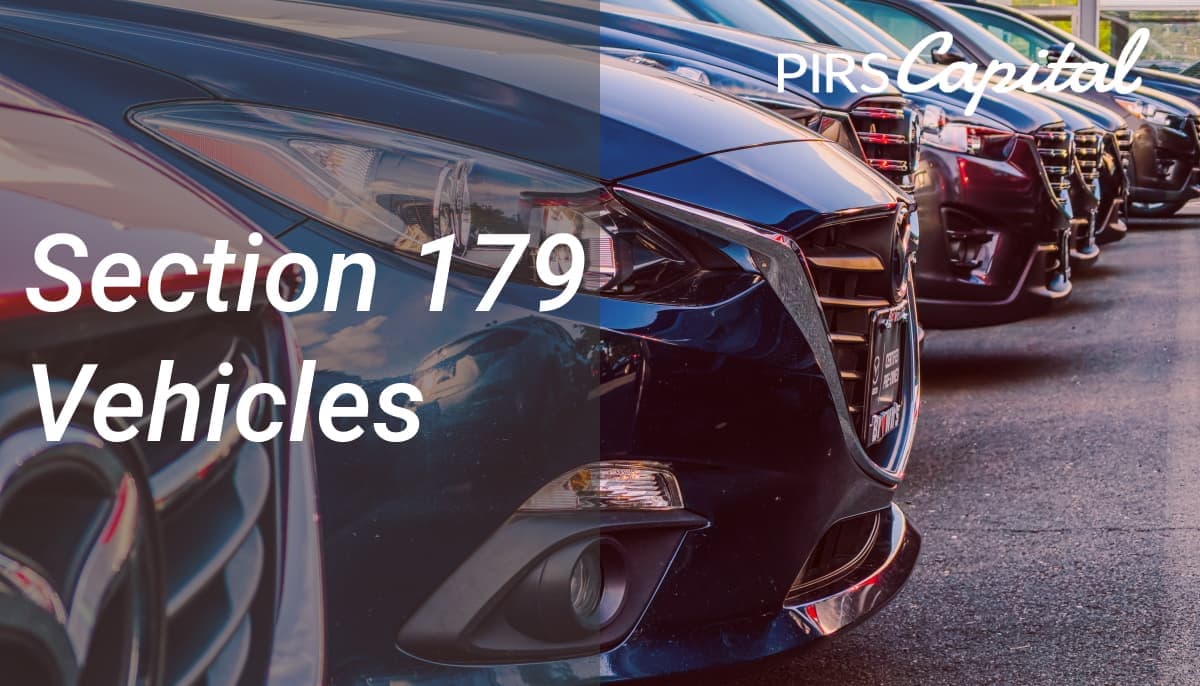
As a small business owner, you can use self-employed tax deductions to lower your tax burden. Section 179 vehicles are one such deduction that businesses and self-employed individuals can take advantage of. These cover many types of property as deductible expenses, but not all types of vehicles qualify.
The section 179 deduction applies to tangible personal property such as machinery and equipment purchased for use in a trade or business, and if the taxpayer singles out qualified items of property, the TCJI (tax cuts and jobs act, amended), they can save money on their tax return. The definition of qualified includes advancement assets, alongside some improvements to non-residential properties such as roofs, heating, ventilation, air conditioning, fire protection, alarm systems, and security systems.
What Is Section 179?
Section 179 is an immediate expense deduction that business owners can take for purchases of depreciable assets, such as equipment, vehicles, and software, instead of capitalizing and depreciating the asset over time. This means that if you buy or lease a piece of qualifying equipment, you can deduct the full purchase price from your gross income.
Nearly every business has assets and property that depreciate over time, but since a larger deduction means lower taxable income in the current year, this deduction encourages businesses to invest in their growth through the purchase of new equipment.
Which Vehicles Are Eligible for Section 179?
Section 179 can apply to any vehicle that exceeds a certain manufacturer’s gross vehicle weight rating. Currently, it applies to vehicles over 6000 pounds. This includes large or heavy SUVs, commercial vans including the Ford Ranger, the Ford Maverick, and the Ford F-150, as well as smaller utility trucks.
To determine if a vehicle is eligible for deduction under section 179, you need to be able to demonstrate the percentage of the usage that will be personal and professional. This is because many common passenger vehicles can easily be used 100% of the time for personal transportation. The IRS places a limit on how much can be deducted.
Heavy Section 179 Vehicles
Vehicles that have a GVWR (gross vehicle weight rating) of over 6,000 lbs. but no more than 14,000 lbs. (which includes SUVs, vans, cargo vans, and trucks) may qualify.
Small Vehicles
If a vehicle is used in a business more than 50% of the time and has a GVWR lower than 6,000 lbs, the deduction available under section 179 may range anywhere. Smaller specialty vehicles include delivery vans or taxis.
See Also:
Which Vehicles Qualify for the Full Section 179 Deduction?
If you purchase a vehicle to use for your business, you can potentially use Section 179 to deduct the focus of that vehicle in the first year. You can only use Section 179 on assets that you use at least half of the time for business purposes.
For 2021, qualifying vehicles have a section 179 tax deduction car limit of $26,200. These vehicles are eligible for a 100% bonus depreciation through the end of 2022.
Starting in 2023, the allowable bonus percentage for depreciation will decrease each year.
The IRS divides Section 179 qualified vehicles into three categories: SUVs, section 179 cars, luxury models, and “other” vehicles:
- Section 179 cars ($18,200 deduction limit): For depreciation purposes, a car is any four-wheeled vehicle (including a truck or van) made primarily for use on public streets, roads, and highways. Its unloaded gross vehicle weight must not be more than 6,000 pounds.
- SUVs ($26,200 deduction limit): Any four-wheeled vehicle primarily designed or used to carry passengers over public streets, roads, or highways and that is rated at more than 6,000 pounds in gross vehicle weight. It should not have a gross vehicle weight of more than 14,000 lbs.
- “Other” vehicles (standard Section 179 limit of $1,050,000): These vehicles include the three exceptions outlined in the above section (i.e., certain large passenger vans, cargo vans, and pick-up trucks).
Which Trucks Qualify for Section 179?
To meet the criteria for the manufacturer’s gross vehicle weight rating, the GVWR must exceed 6,000 Ibs. You can verify the GVWR of a particular vehicle by checking the manufacturer’s label, that’s usually located on the inside edge of the driver’s side door. This is where the door hinges meet the vehicle’s frame.
- 2022 Ford Transit
This large passenger van has a seating capacity for fifteen people and has an MSRP of $41,945. Due to its passenger-carrying capacity, it qualifies for the full Section 179 deduction. That is, assuming 100% business use, business owners can deduct the purchase price in the first year of service.
- 2022 Chevy Silverado 3500 Duramax Diesel
This heavy-duty pick-up truck is equipped with a 445 horsepower (hp) V8 engine capable of towing up to 36,000 pounds犀利士
. Its MSRP starts at $40,700, and its extended bed qualifies business owners for a section 179 deduction of the purchase price.
Luxury Vehicles for Section 179
Did you know several great luxury vehicles qualify for section 179 because of their GVWR or Gross Vehicle Weight Ratings?
This list will break down the top few luxury vehicles that qualify for section 179, and I bet you’ll be surprised at what qualifies in 2022!
Mercedes-Benz AMG GLE 63 S 4MATIC SUV
The AMG GLE 63 S 4MATIC SUV is equipped with a 360hp, 4.0L V8 Biturbo with a mild hybrid drive engine that tow up to 7,700 ins. It can seat up to 5 passengers.
2022 Tesla Model X
This crossover SUV comes equipped with a 1,020 peak horsepower (hp) electric motor. Its MSRP starts at $79,990, and it has a 6,800-pound GVWR. Qualifying business owners can take a section 179 deduction under the SUV Section of $26,200.
2022 Range Rover P525
This high-end, luxury SUV is equipped with a 518 horsepower V8 engine. It has a $105,950 MSRP and 6,967 pound GVWR, and qualifying business owners can deduct $26,200 under Section 179.
2023 Mercedes-Benz GLA 250 4MATIC SUV
The GLA shines on the inside; it has a remote start, an illuminated entry system, and a power liftgate. It can tow up to 7,000 lbs.

I work with companies that sell products on platforms such as Amazon, Shopify, Walmart, Ebay, Etsy, etc. I understand that every business is unique and thats why I form genuine relationships with owners so I can help them reach their goals and find success through our working capital solutions.
